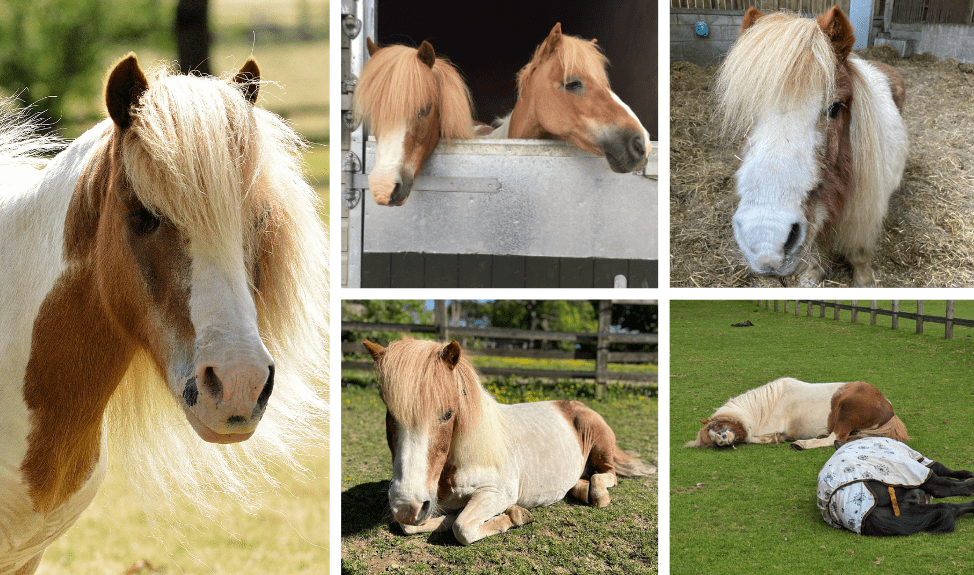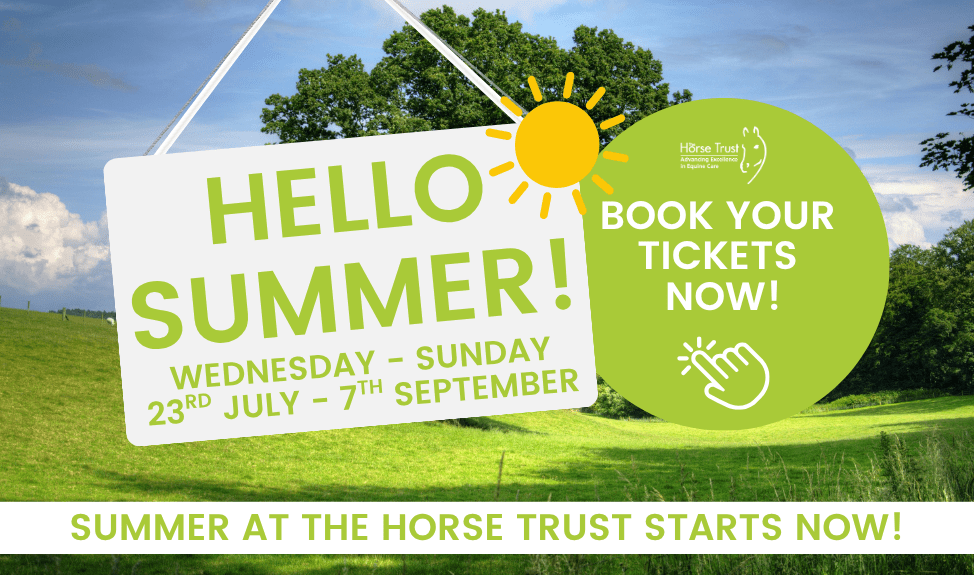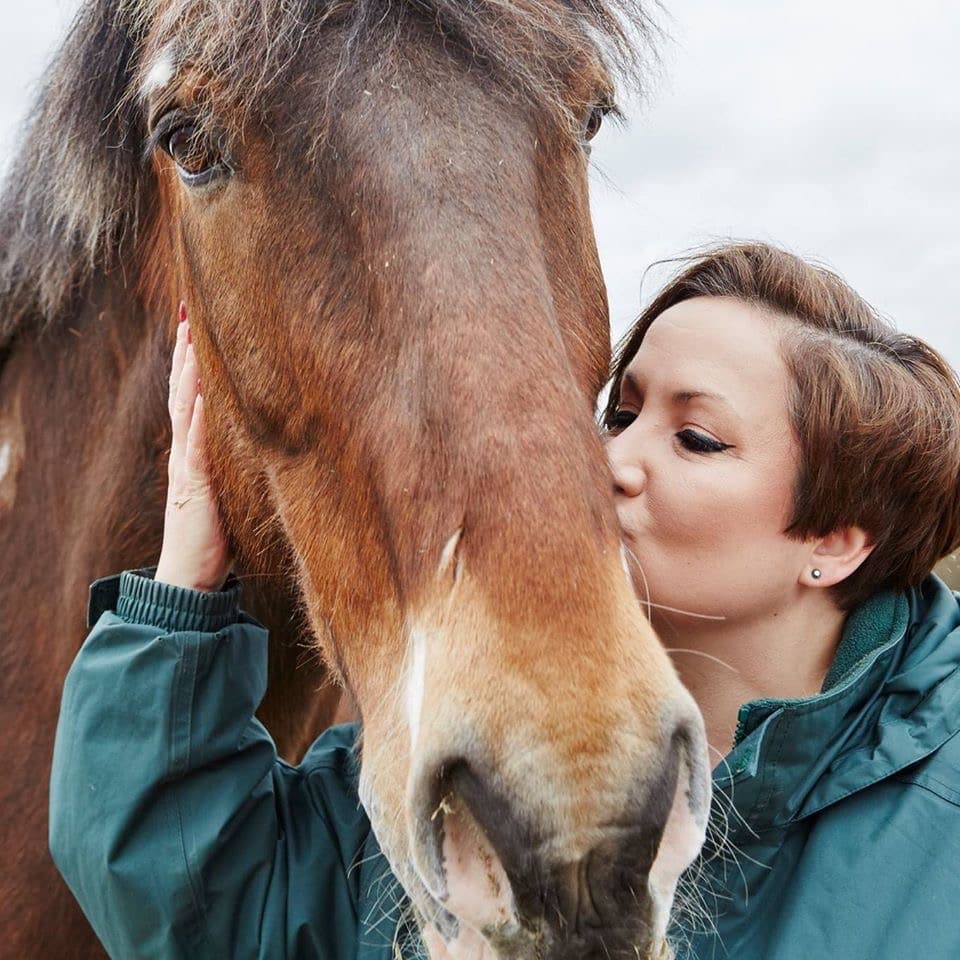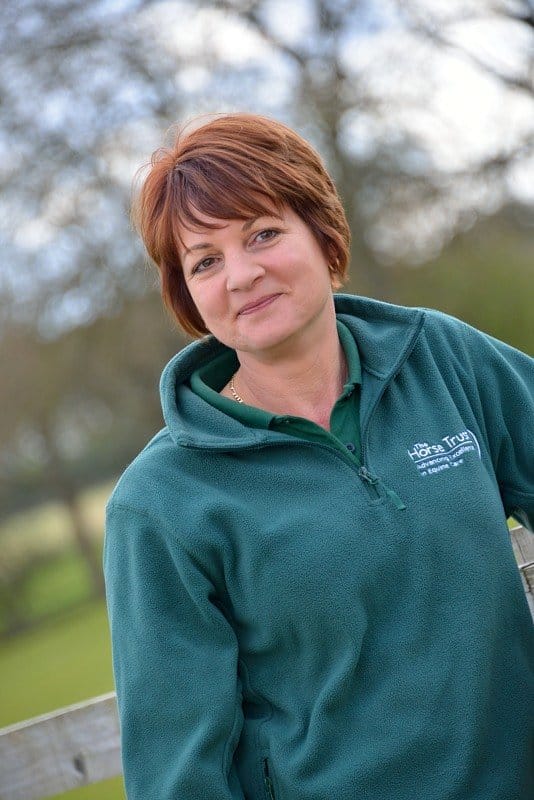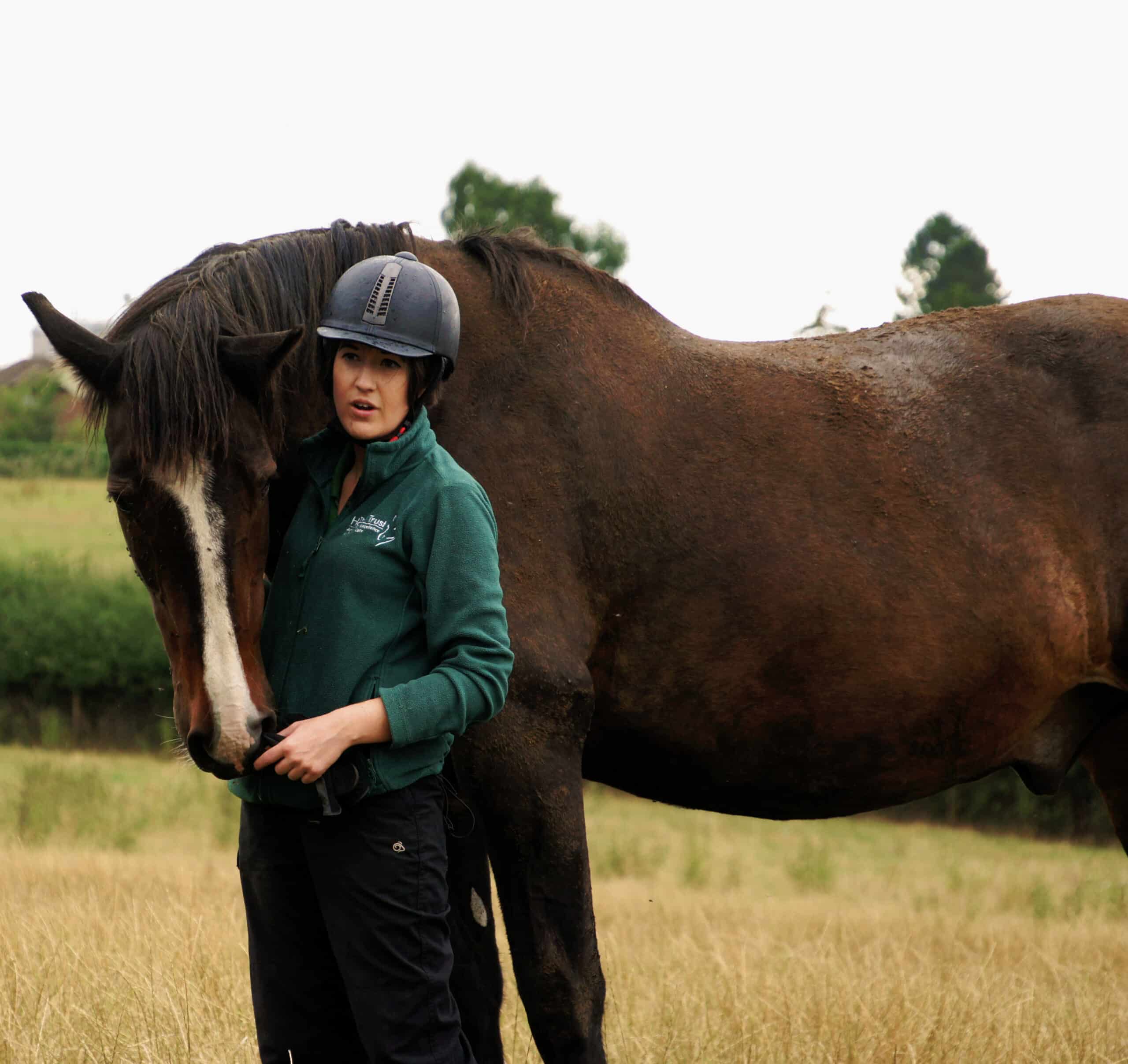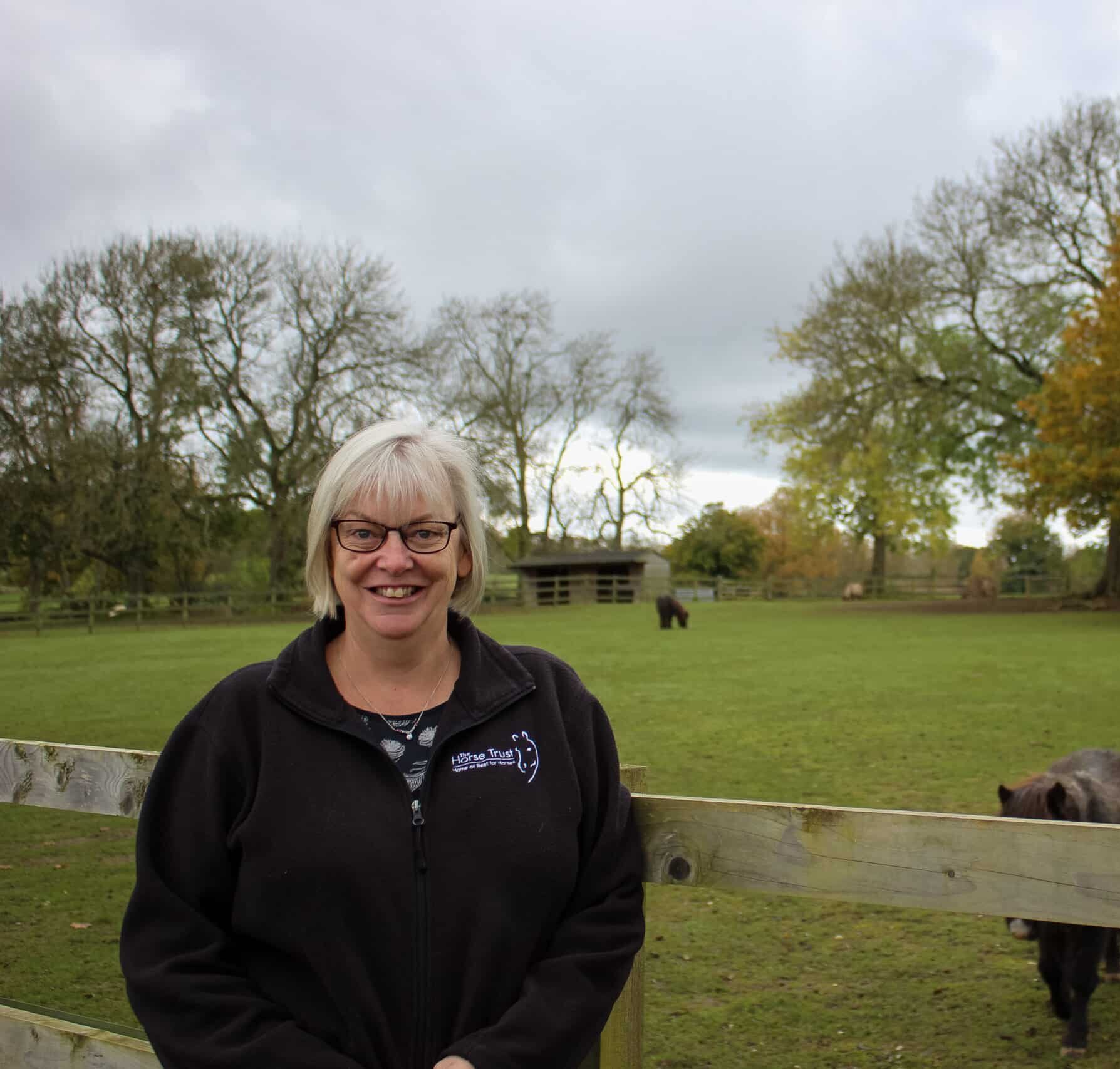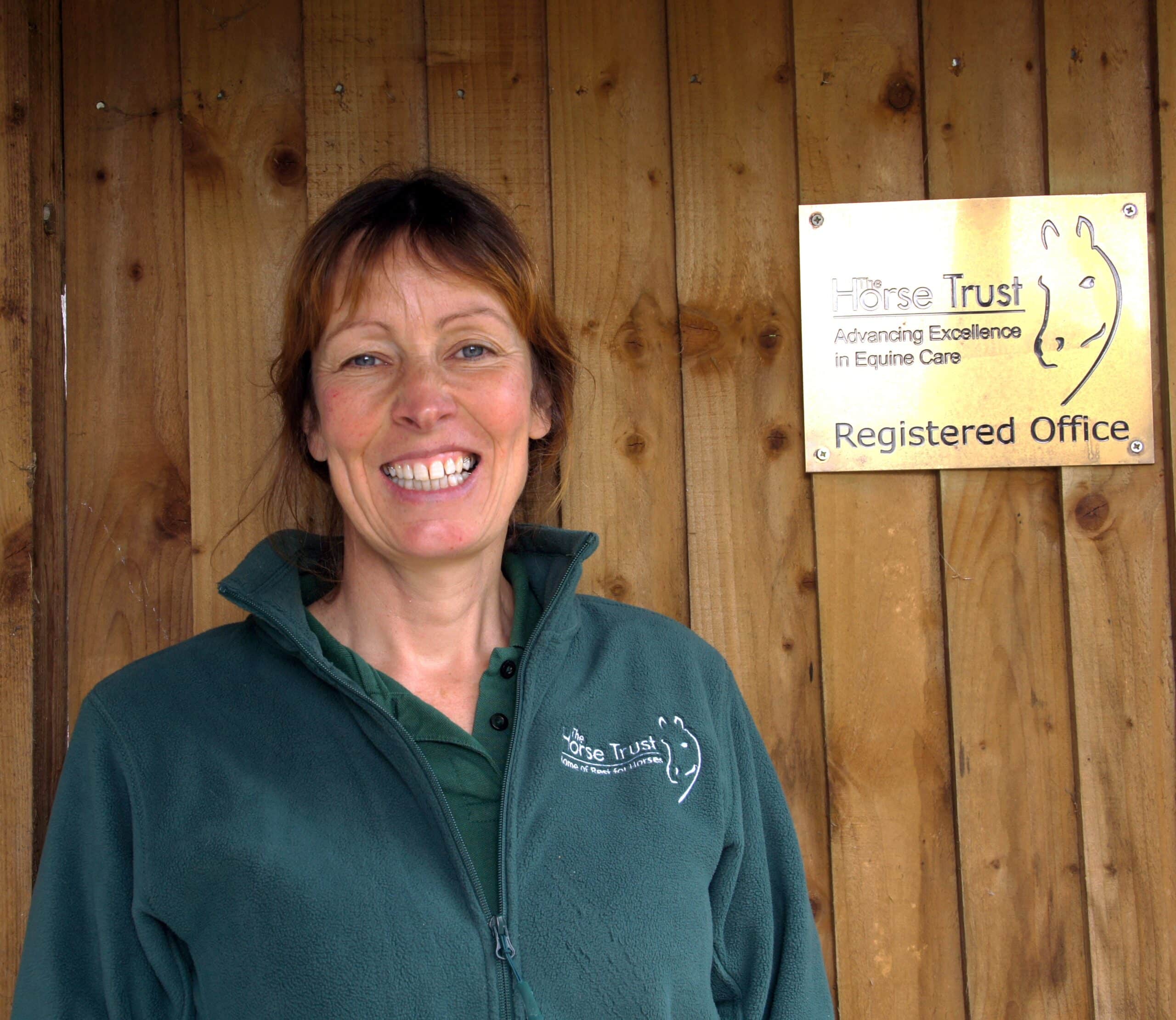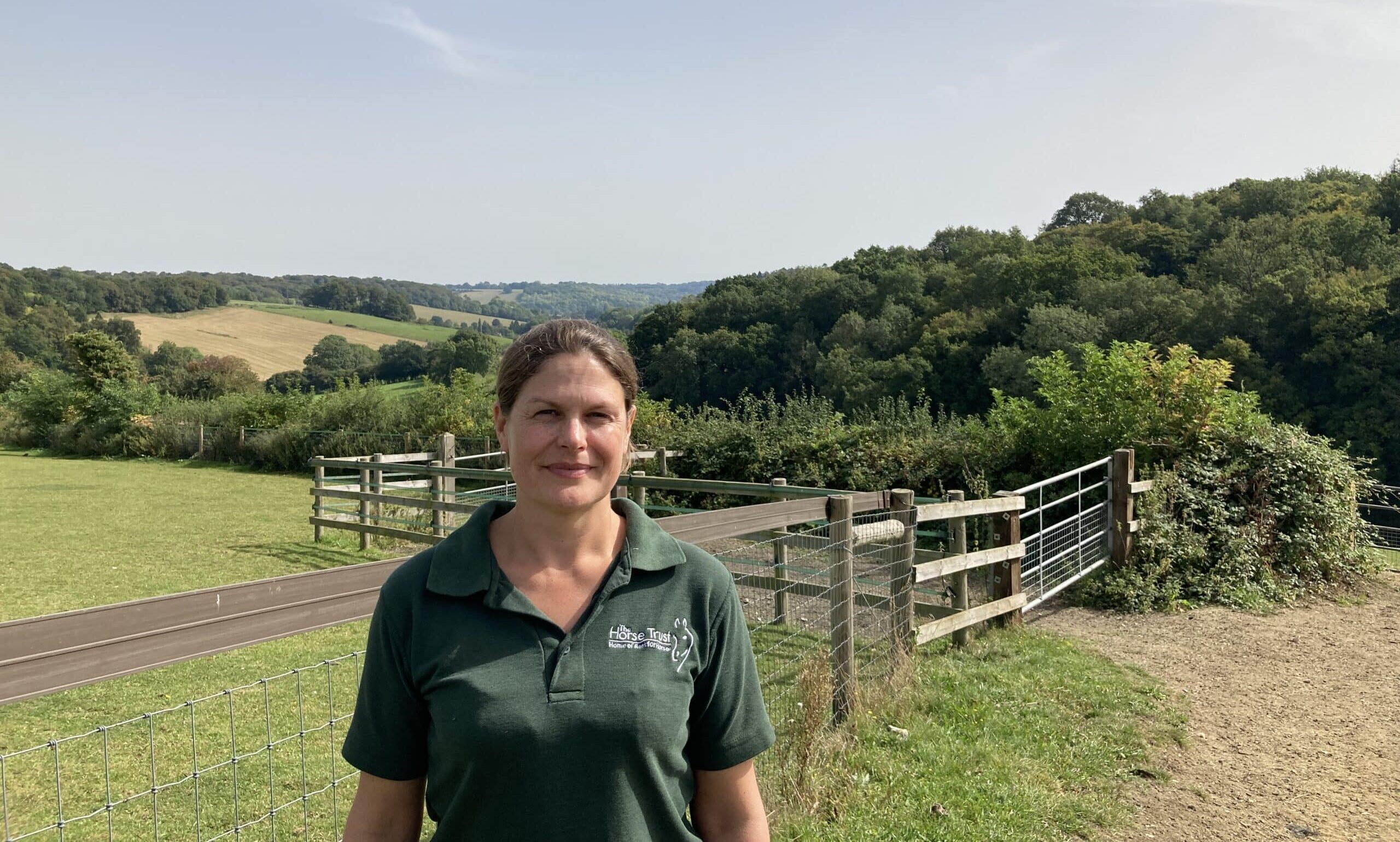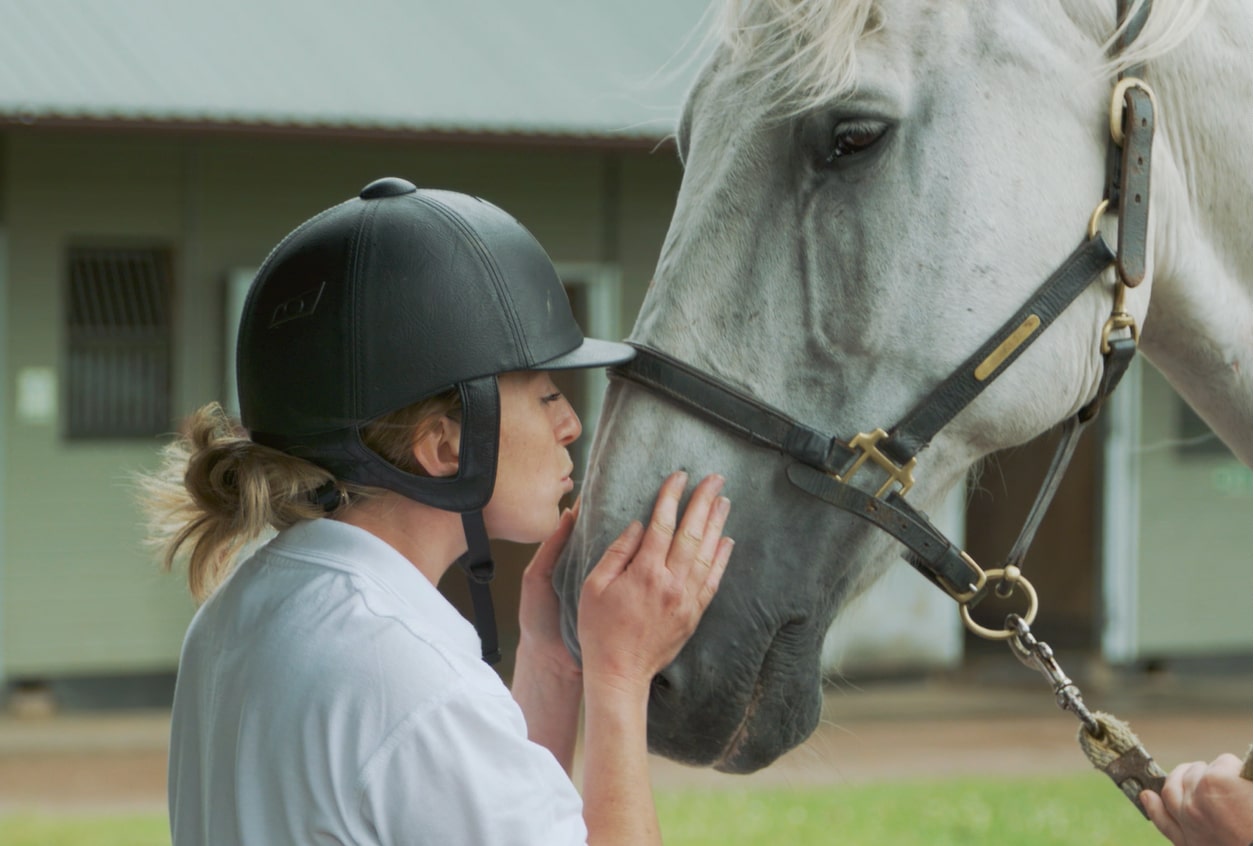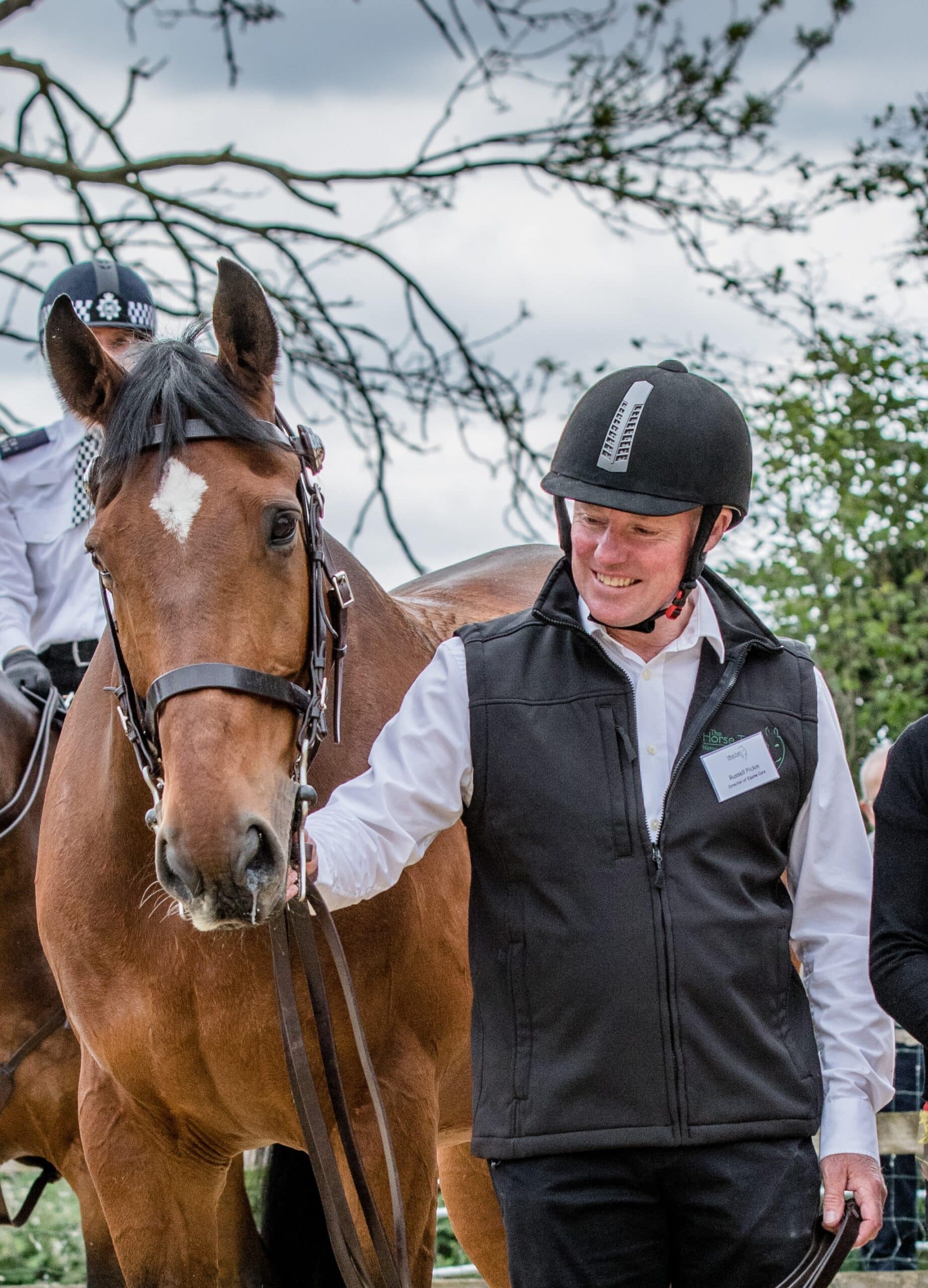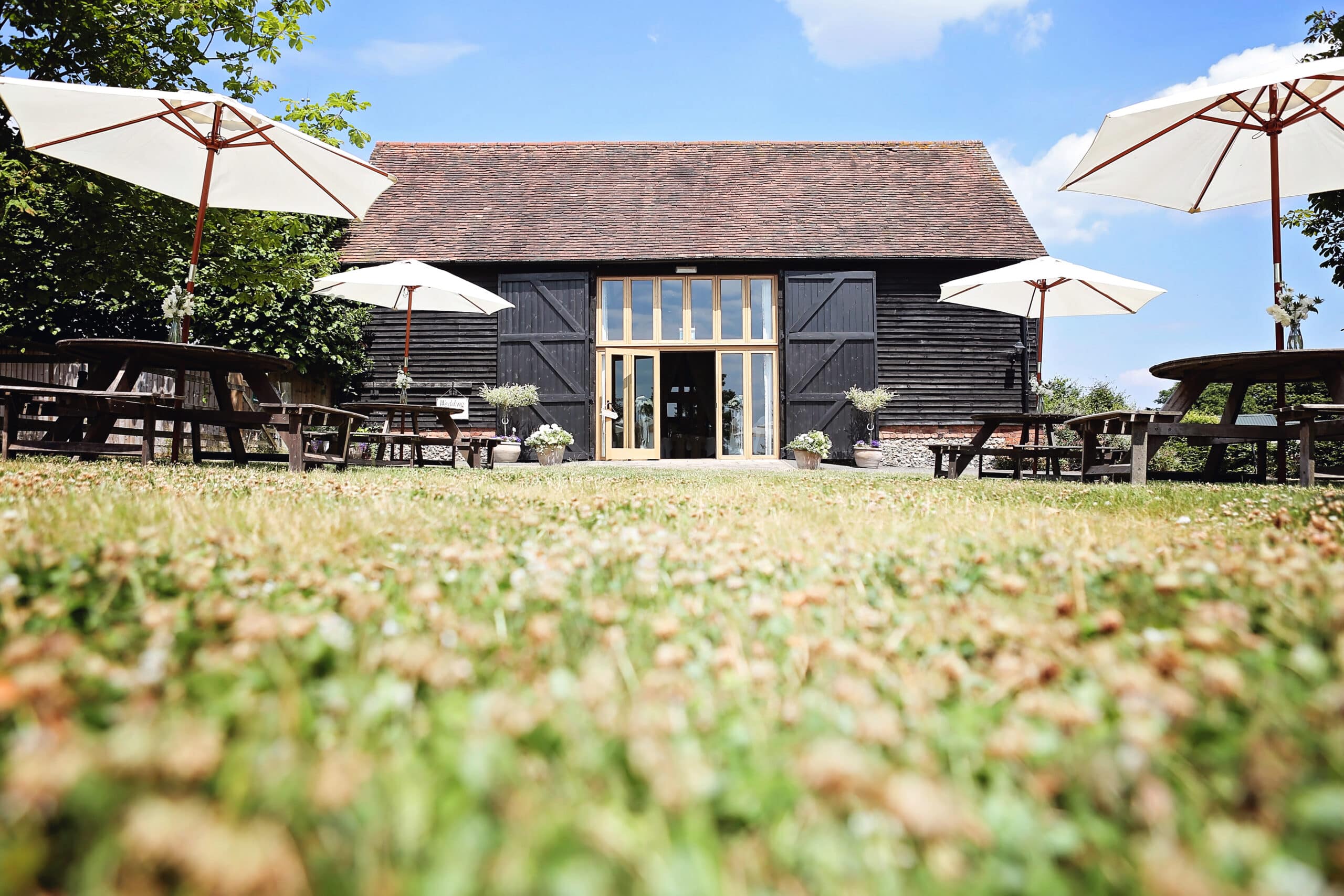Your cart is currently empty!
Horse Trust rescue residents, Ernie and Sam, grazing in the Chilterns. Photo credits: Natalie, Senior Groom.
A ground breaking discovery has been made in the quest to understand and combat Equine Grass Sickness (EGS), a devastating disease that has baffled researchers for over a century. Scientists have identified a neurotoxin, with actions similar to snake venom toxins, as the probable cause of this condition. Suspected to be produced by microbes on horse pastures, this neurotoxin could pave the way for revolutionary treatments and diagnostics.
Equine Grass Sickness, first reported in Tayside, Scotland, in 1907, affects approximately 1% of horses grazing in high-risk areas, causing severe nerve degeneration. This results in symptoms such as paralysis of the gastrointestinal tract, inability to swallow, muscle weakness, and abdominal pain. In its most severe forms, EGS is fatal within 24-48 hours, while approximately 50% of chronic cases survive with intensive care.
This recent breakthrough comes from a collaboration between the University of Edinburgh, Newcastle University, and international institutions. Researchers discovered a unique “toxin signature” at the neuromuscular junctions of affected horses, pointing to a neurotoxic enzyme called phospholipase A2. Intriguingly, this toxin is similar to those found in snake venom, opening doors to potential treatments inspired by therapies used in human medicine for snake envenomation.
Professor Bruce McGorum, R(D)SVS Equine Hospital, highlighted the importance of this discovery, saying:
Identifying a probable cause of Equine Grass Sickness represents a significant breakthrough. We hope this discovery will lead to novel treatments and improved diagnostics for this devastating condition.
Further studies are underway to pinpoint the microbial source of the toxin, with a focus on fungi or bacteria that thrive in specific pasture conditions.
The Horse Trust’s Contribution
The Horse Trust is proud to have played a small but vital role in this research journey. As one of the oldest equine charities globally, it has long supported efforts to improve horse welfare and tackle diseases like EGS.
In 2016, The Horse Trust funded a study at the University of Edinburgh investigating the potential role of mycotoxigenic fungi in EGS. Reflecting on this milestone, Professor McGorum said:
We are very grateful to have been awarded Horse Trust funding for research that has contributed to this apparent breakthrough.
Jan Rogers, Research and Policy Director at The Horse Trust, added:
We are thrilled to have had even a small involvement in what looks like a really meaningful outcome, potentially impacting on the wellbeing of so many horses.
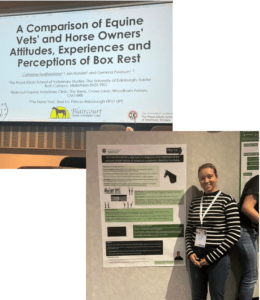
Celebrating Achievements in Equine Research
In addition to this exciting development, The Horse Trust recognises the achievements of Director of Behaviour, Dr Gemma Pearson, who was recently awarded a Fellowship by the Royal College of Veterinary Surgeons (RCVS)
Dr Pearson, a renowned specialist in Veterinary Behavioural Medicine, was honoured for meritorious contributions to clinical practice. She has an MScR and a PhD investigating stress in horses during veterinary care and runs a pain and behaviour referral clinic at the Dick Vet Equine Hospital
Dr Pearson continues to advance the discipline of equine behavioural medicine, including presenting two abstracts at the European Veterinary Congress for Behavioural Medicine and Animal Welfare in Paris. Alongside her MSc student, Cath Featherstone, she explored topics such as the link between pain and behaviour in horses and the perceptions of box rest among vets and horse owners.
As well as research to advance knowledge she travels extensively to disseminate knowledge on low stress veterinary care and equine behavioural medicine to vets around the world, in 2024 she has spoken at over 20 different conferences and training events.
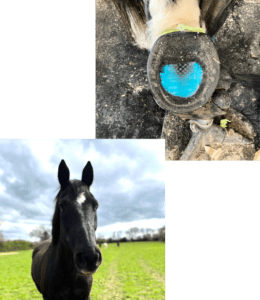 Follow Gus’ Journey
Follow Gus’ Journey
For a practical application of research in equine welfare, follow the story of Gus, a retired Household Cavalry horse at The Horse Trust. Gus recently underwent surgery for a hoof tumour and is now recovering in box rest. His journey highlights the dedication of equine specialists in ensuring the wellbeing of horses in their care.
Stay updated on Gus’ progress and Dr Pearson’s ongoing research by visiting The Horse Trust’s social media channels.
Looking Ahead
The Horse Trust is committed to supporting innovative research and practical care for horses, ponies, and donkeys. From supporting crucial studies to celebrating advancements in veterinary medicine, we remain dedicated to improving the lives of equines worldwide.
If you’d like to support our work, head to the ‘support us’ section by clicking the link below. Together, we can ensure a brighter future for horses everywhere.
[maxbutton id=”14″ url=”https://horsetrust.org.uk/support-us/” ]
Related Posts
MAKE A WORLD OF DIFFERENCE

We receive no government funding, so your support is vital in providing specialist care for our residents and advancing research and training to benefit horses everywhere.
Donate today to help us continue this essential work.
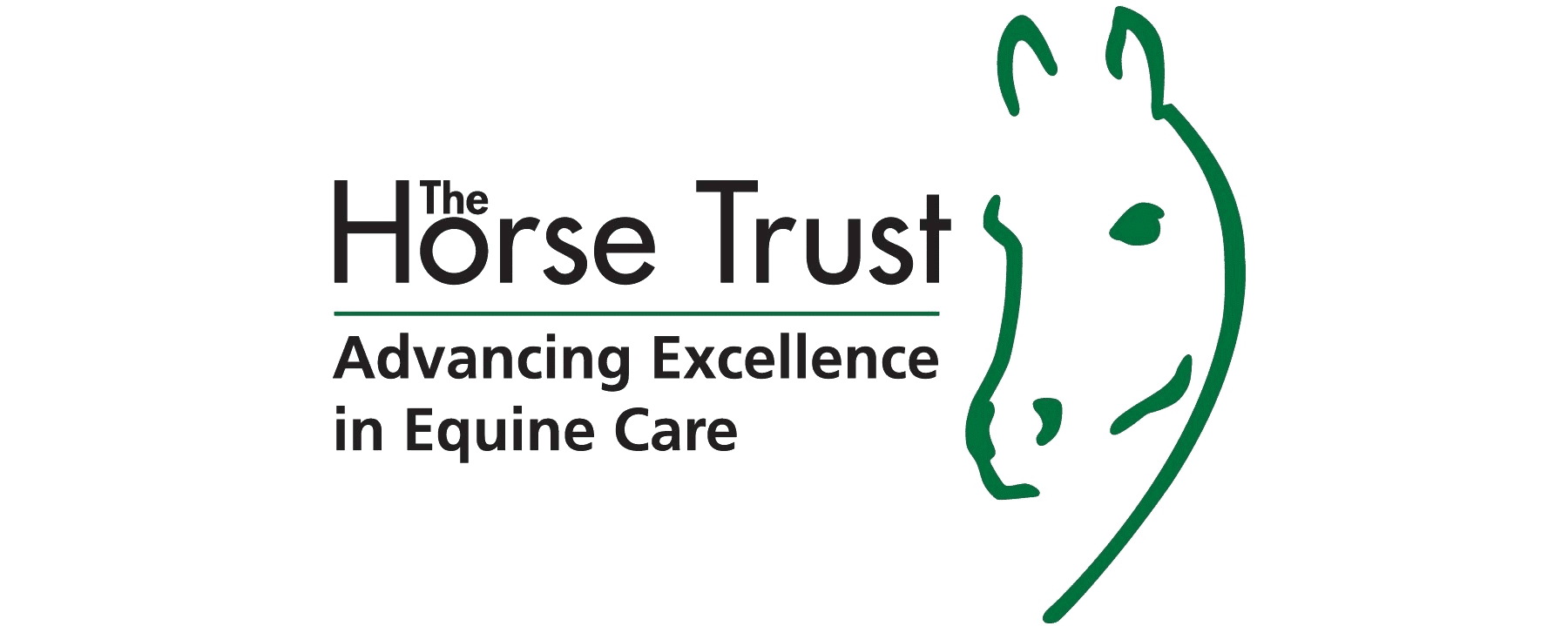
 Donate
Donate
